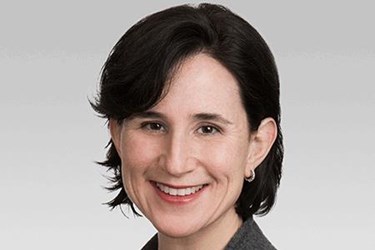Managing Global Healthcare Professional Entertainment Limits

By Tiff Moseley
In the life sciences industry, a company’s anticorruption policy inevitably governs how employees engage with foreign healthcare professionals (HCPs) – who are considered foreign government officials (FGOs) under most global anticorruption laws. But many companies are finding that a traditional anticorruption policy focused on how not to interact with FGOs can raise more questions than it answers. One limitation of a how-not-to-interact policy is implementing the various global laws governing permissible gifts and meals for HCPs consistently with compliance measures used to mitigate against the risk of, or appearance of, illegal, corrupt payments to FGOs.
Employees who must proactively engage with HCPs in a culturally sensitive but globally compliant manner frequently need answers to questions like: Can I bring chocolates to the doctors participating in a day-long clinical trial meeting in the Ukraine? If we are hosting a meeting in France, do I use the French meal limits for all HCPs regardless of where they are from?
Many generic anticorruption policies contain a blanket prohibition on gifts or simply do not address situations like these. In-house and compliance professionals in life sciences companies therefore need to be able to respond to these questions with specific, consistent, and clear direction on how to interact with foreign HCPs in a manner that meets global anticorruption requirements.
One way to tackle this issue is to consider adopting a stand-alone policy for how to engage with foreign HCPs that sets out the global meal and gift limits and provides guidelines on how to implement those limits in a manner that mitigates the risk of violating global anticorruption laws. First, knowing the who, what, when, where, and how is important when developing an effective policy and subsequently monitoring anticorruption risk associated with foreign HCP interactions. For example, many research scientists do not consider foreign researchers, who are frequently also doctors and professors in their home country, to be FGOs. Therefore applicable meal and gift limits and associated anti-corruption compliance concerns go unaddressed. Once they’ve identified the risks, some companies address this issue by building a database, accessed through the company intranet, that allows employees to pull up country-specific meal, gift, and reporting information from wherever they are located for real-time, accurate answers. While this approach may not work for every company, a policy that formally recognizes and embraces the need to constructively engage with foreign HCPs promotes an integrated, holistic approach to anticorruption compliance that supports core business functions and consequently better helps mitigate against anticorruption risk.
Finally, implementing a policy outlining how to engage foreign HCPs in a transparent, honest, and globally compliant manner also promotes the growth of the life sciences industry and furthers the industry’s mission of contributing to the health and wellness of countries around the globe.
Author:
Tiff Moseley is a Washington, D.C.-based partner at law firm Loeb & Loeb LLP. She is a former federal prosecutor with over 15 years of experience representing both private and public sector clients in corporate investigations, criminal enforcement matters and complex commercial litigation.
